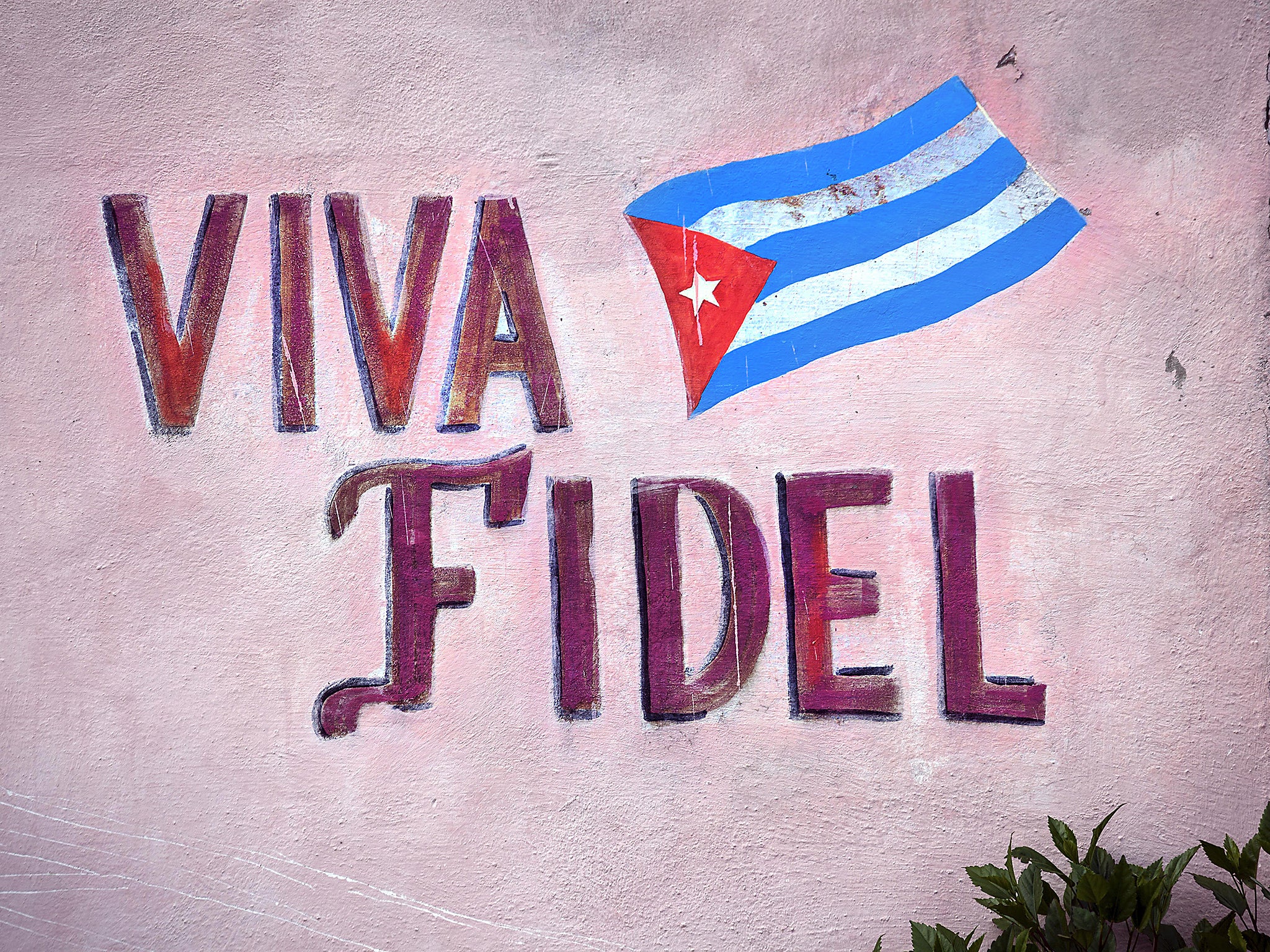My family live in Cuba – the people may be poor, but Fidel Castro's legacy will live on
Here, the grandchildren of peasants really do go on to become consultant surgeons and commercial airline pilots. These are the people who idolise Fidel and will mourn his passing more than most

Cuba today, like so many poorer countries before it, is developing so rapidly along so many different lines that it’s a challenge to describe the modern country to someone who has never been there.
Wifi hotspots are popping up all over the place in urban areas, and luxurious tourist resorts are being built at an unprecedented rate, while in rural Cuba farmers, or campesinos as they are known, still use ox to plough the red soil and tobacco farmers pick large green leaves by hand.
They are all Cuban of course, but if you asked me to show you the “real” Cuba, I would take you to a small town called Chambas in the province of Ciego de Avila in central Cuba. Surrounded by fields of sugarcane and maize, Chambas is a typical small rural Cuban town, where horse-drawn taxis take weary shoppers home and owning a car, even a 1950s US behemoth, is beyond most people’s wealth.
My wife’s grandfather Raul lives here – now in his early sixties, he spent most of his life resurfacing Cuba’s pot-holed roads until an accident a few years ago chopped off most of the fingers on his left hand. He now helps the neighbouring farmers as a labourer in the fields overlooking his house.

Raul lives in a largish wooden shack he rebuilt last year with the help of his son and son-in-law. The floors are uneven concrete, the windows don’t shut properly and the thatched roof wouldn’t survive a category 1 hurricane, let alone a category 4.
In the corner of the kitchen a 1950s Russian-made fridge hums, and there is a tiny colour TV in the lounge. Raul for most of his life earned 300 pesos a month. That’s about £12. It’s the normal wage in Cuba for most state employees. There are also monthly rations of course. Raul is a Cuban peasant and his life is not an easy one, but his house has electricity and running water. Clean water.
This is Fidel’s legacy. Clean water and electricity for all. And universal free education and healthcare. Cubans often joke that they’re healthier and better educated than Americans despite the 50-year-plus US blockade.
So for me, rural Cuba is Fidel’s Cuba. His ideals live on here – and the rural poor of Cuba have benefited the most from his cradle-to-grave policies. Here, the grandchildren of peasants really do go on to become consultant surgeons and commercial airline pilots. These are the people who idolise Fidel and will mourn his passing more than most.
Urban Cuba on the other hand is fast becoming the Cuba of the current President, Raul Castro. When I first visited Cuba in 2007, it was rare to see a Cuban with a mobile. The other half wasn’t allowed into hotels or the opulent all-inclusive resorts. That’s all changed of course.
Now if I wander into the main square of Placetas, where I own a house, at any time of the day or night, people will be hunched over their mobiles and tablets, talking to relatives in Miami over Skype and IMO. And Placetas, while much bigger than Chambas, is not on the tourist trail, I’ve never seen another foreigner there, it’s a typical large town, about 30km east of Santa Clara, where the armed revolution was won.
Life is pretty typical of Cuba here – it’s pleasant enough – the electricity rarely goes (unless there’s a big storm), crime is low, the schools are good and the hospital and polyclinics are well equipped. Shortages of goods, which the locals still blame on the US blockade, vary from month to month.
In January this year I couldn’t get cola anywhere. During my last trip in October, beef was impossible to source. But there was plenty of imported chicken from the US and Brazil. In Santa Clara the only beer you could buy in most state-run bars last month was El Presidente, a pleasant enough imported brew. Why? No one knows.
Some Cubans in Placetas have done well running their own businesses, living in big houses and driving modern European-built cars, but they’re still the exception. Most Cubans I speak to support the reshaping of the economy and the greater ties with the US. Just like us, they want to better their lives, they want a better mobile phone, a bigger house, they want to travel.
But none of them would want to live in a Cuba, no matter how rich, without universal free education, free healthcare, cheap public transport and the lowest rates of violent crime in the Americas. None of them. This is Fidel's legacy.
Join our commenting forum
Join thought-provoking conversations, follow other Independent readers and see their replies
Comments
Bookmark popover
Removed from bookmarks